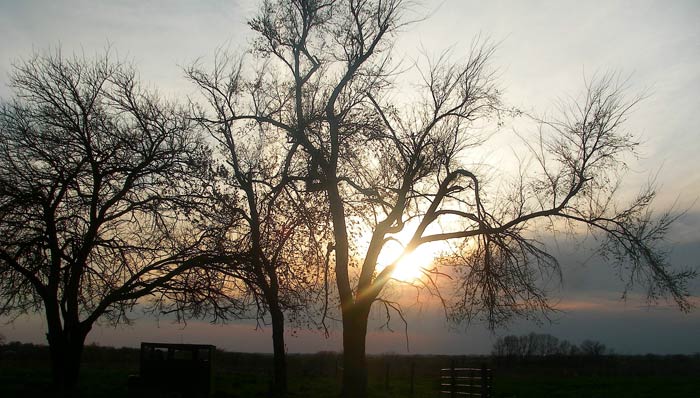–
–
Admittedly, I am contrarian by nature. I’ve always bristled at the idea of “peak season” when it comes to fall foliage. This idea that there’s a perfect weekend when the deciduous trees of the Northeast look their best. Sure, the colors are spectacular, no doubt. But I like the trees all the time, any day of the week.
Especially in the winter.
That’s when I can most admire their scaffolding, the structure and shape and enduring strength of the creature itself. They drop their leaves and apply their resources to more pressing matters, hunkering down to survive another long, cold winter.
These days, I frequently find myself driving from Delmar to Saratoga, up and back, about three times a week. My daughter, Maggie, rows for the Saratoga Rowing Association — and the water’s up there. So in the car we go. It’s more travel time than I’ve ever had in my life. I’m one of those people who gets excited every single time I see a hawk — or maybe it’s an eagle, it’s hard to tell. On a travel day, I spend about 90 minutes cruising on 87, listening to music and admiring the trees. And in winter, I can really see the random hawks perched on the limbs, feathers puffed up against the cold, giving them the appearance of jolly, fat assassins.
On most days, I’ll compose a few lines of haiku as I drive, hoping to jot them down later. I realize it’s a form derided by some literati, but I enjoy writing most of my haiku in the traditional 5-7-5 form, even though it’s somewhat out of style nowadays. I like the wordplay and rigor of it. Often my focus is on those trees, the winter weather. Here’s a few, like a fistful of almonds:
In the winter trees
her bony grip, long fingers
twisted and wind-whipped.
The wolf’s moon hangs low
beckons through bare branches, come:
a headlight drives past.
Where a branch broke off
the grandfatherly red oak
a barred owl now nests.
The plump winter wren
moves through the understory,
trills and whirls, tail down.
The tall trees lie down
in shadow across sunlit
snow, ever patient.
Amidst the white field
a stand of resolute oaks,
but not forever.
The sparse silhouette
against a gray winter sky
declares: hickory.
The beech holds its leaves
shimmering like winter moons
papery and light.
Steel-gray buckets tapped
into maples; the crows watch
from snow-covered limbs.
Crows seem skeptical
of melting snow in cold rain,
perched on bare branches.
The bare winter elms
reveal the assassin’s shape:
hawk perched on a limb.
Anyway, whatever. I don’t worry too much about ideas of quality — whether they are “good” or not — more interested in the process of attending to things, getting out of myself, and seeing. Basho’s “the journey itself is home.”
It made me happy to read the following passage in Bill McKibben’s most recent novel, Radio Tree Vermont. I’ve been a huge fan of his work since reading his landmark book, The End of Nature, when it came out nearly 30 years ago. In this scene, Vern Barclay muses on Vermont’s trees after the giddy explosion of autumn colors has passed:
–
And when it was over, it was even better. The leaves were down by mid-October, and you could see the shape of the land again, see the late sun silhouetting the trees along the ridgetops as it set. You could sense the architecture of the hills, every hollow and creekrun and knoll visible from the road. When people thought of trees, they thought of leaves — that’s how a child would draw them. But the natural inclination of trees at this latitude was bareness — seven months of the year, at least upslope, they stood there stoic. Leaves were the fever-dream exception to the barren rule, and Vern felt calmer once they were down.
AN ASIDE: My first book of haiku, written for children, comes out in the Fall of 2019, illustrated by the great Mary GrandPre (of Harry Potter fame). It is titled All Welcome Here and celebrates the community of the classroom on the first day of school.




